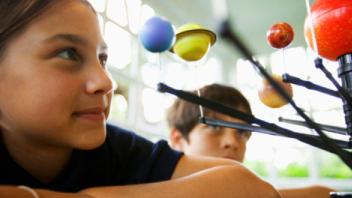Research and information literacy is something students work on throughout their school career. It’s a collection of skills that, when combined, means that a learner is able to find, understand, evaluate and use information. Interest in information literacy grew out of a need to create learners for the 21st century. Here you’ll find information about two ways to begin to develop information literacy in your child.
Evaluating information: fact vs. opinion
One of the first skills in developing information literacy is being able to tell the difference between fact and opinion. A fact is a statement that can be proven true or false. An opinion is an expression of a person’s feelings that cannot be proven. An awareness of the difference can be developed through questions and conversations. Engage your child in conversation using the words “fact” and “opinion” and have him identify statements of both types. For example, “Chocolate chip cookies are the best kind of cookie.” “Mommy has dark brown eyes.” “School should be cancelled on sunny days.” “There are 12 months in a year.”
Evaluating information sources
These days, there are many, many sources of information. Children are bombarded by messages from several media and online sources, books, friends, and people at school. An important step in developing information literacy is learning to evaluate the source of information, especially for online information. It’s helpful to help your child consider some of the following:
- Who is the author of the information?
- What do we know about the author or organization? Is that person an expert? Is that organization respected by others?
- Why was this information written? Is the author trying to persuade you to buy something?
- Does the information present fact or opinion?
- Is the information recent? When was it published?
Parents and teachers can help children develop research and information literacy by sharing their love of learning. Encourage their curiosity about the world and desire to find out more. At the same time, help them become wise consumers of the information they find. These are skills that will last a lifetime.
Recommended resource
All the Information in the Known Universe
The Kentucky Virtual Library has created an interactive website all about how to do research, developed just for kids. Help your child learn more about the steps in the research process: Take an interactive ride on the “research rocket” to explore the research frontier. How to Do Research
Download this article in Spanish
Subscribe to Growing Readers!
Get our free monthly parent tips — in English and Spanish — delivered right to your inbox!
